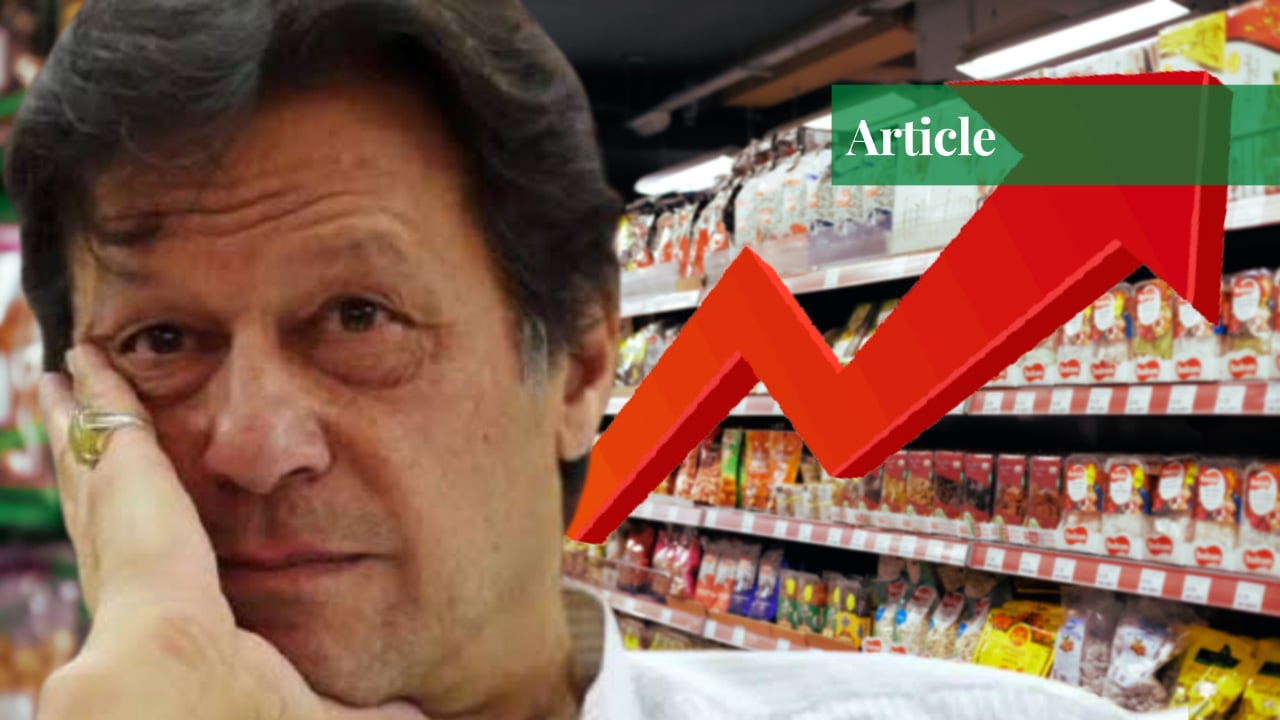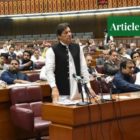Ms Ayesha Zafar is currently pursuing her Bachelor's in International Relations from National Defence University, Islamabad. She has authored multiple academic publications including research articles and book chapters. Her areas of interest include Middle Eastern politics, the geopolitics of Central Asia, and the Indo-Pacific region
Spiralling Inflation
Pakistan must seek the help of the International Monetary Fund (IMF), as it is twirling from an unprecedented economic fallout characterized by high inflation, low fiscal growth, and rising unemployment. Today, lower and middle-income class families are struggling to make their basic ends meet. The prices of commodities have skyrocketed, with the petroleum prices alone reaching 145. 82 rupees per liter and the value of the Pakistani Rupee constantly depreciating.
Worryingly, the inflation rate hit 9.2% in October according to the Bureau of Statistics, and the consumer price inflation climbed to 11.1% in April which is the highest in the past 13 months. Despite Pakistan’s projection of 3% growth for the fiscal year 2020-21, IMF showed apprehensions about the statistics and predicted it to be less than 1.5%.
In such a crisis situation, Prime Minister Imran Khan is under severe criticism for not providing people with any relief and not doing enough to rein in the price hikes. Although he had vowed to fix Pakistan’s economic fallout, after three years at the helm, he seems to have failed to deliver on his promises.
The IMF Dilemma in Pakistan
Yet, economists held that it is Pakistan’s 2019 economic deal with the IMF that is responsible for the rising inflation, since IMF has conditioned the bailout package to Pakistan’s increasing taxation and prices for generating revenue. Nevertheless, at this trembling point with the economy falling apart, Special advisor to Imran Khan on finance, Shaukat Tarin, underscored the need to have a $1 billion tranche released from IMF to stabilize the economy.
The agreement was reached back on June 3, 2019, when a $6 billion bailout package under the Extended Fund Facility (EEF) was agreed upon between Pakistan and IMF after months of intense negotiations. Its objective was to help Pakistan reduce economic vulnerabilities while coming up with a decisive fiscal policy aimed at reducing public debt and rebuilding official reserves.
Nonetheless, the disbursement of the amount was subjected to four quarterly and four semi-annual reviews. The First Deputy Managing Director and Acting Chair, Mr. David Lipton, said: “Pakistan is facing significant economic challenges on the back of large fiscal and financial needs and weak and unbalanced growth”.
It has to satisfy IMF conditions while keeping into consideration the needs and demands of ordinary citizens who can’t bear the burden of increasing inflation. This is one of the reasons IMF has withheld payment in January 2020 as Prime Minister Imran Khan decided not to impose additional taxes and increase the price of electricity.
However, owing to the pandemic and its impacts on the economy of Pakistan, which has contracted by 0.47% in 2019-2020, today this bailout package of IMF is needed to make the economy rebound. Hence, the cumulative inflation with increasing pressure on Imran Khan’s government for failing to deliver on promises has all created an overwrought situation.
The PTI Government in Hot Water Over Rising Prices
The opposition is ready to use this epic incompetence of Imran Khan’s government as a strong card against him in the upcoming elections in 2023. This is one of the reasons Imran Khan’s government is doing all it can do to negotiate with IMF on easing the tough conditions attached to the $6 billion bailout package.
The Finance Minister, Shaukat Tarin, referring to the 2019 Bailout Package stated, “The targets they have given us, that is tough … We have talked to them and they are very sympathetic,”. Adding further, he said that Pakistan did not want to leave the program but had asked the IMF to give “…some space”.
Henceforth, the recent agreement between Pakistan and the IMF for the approval of the next tranche of over $1 billion by January 12, 2022 is subject to reforms and policies needed to complete the sixth review under EEF. In this regard, Pakistan is required to make fiscal adjustments of over Rs 800 billion by raising revenues and cutting down expenditure.
Not just this, Islamabad has to make efforts for Parliament approval of the State Bank of Pakistan (SBP) Amendment Bill and a mini-budget to remove GST exemptions for fetching Rs. 350 billion, in contrast to the earlier agreed amount of Rs. 700 billion. However, it is now a challenge for the government to get these bills approved by January 12, 2022 when the payment of $1 billion is said to be released.
Apart from this, the government has agreed under IMF conditions to increase petroleum prices by Rs. 4 per liter every month till it reaches Rs. 30 per liter. Moreover, the tariffs are expected to increase by 40 to 50 paisa per unit on the cards in the coming months. Henceforth, the government has pledged to enact the required reforms as this will be the last chance for the PTI government to do the needful for approval by the Executive Board of the $1 billion tranche of the loan.
If you want to submit your articles and/or research papers, please check the Submissions page.
The views and opinions expressed in this article/paper are the author’s own and do not necessarily reflect the editorial position of Paradigm Shift.



















